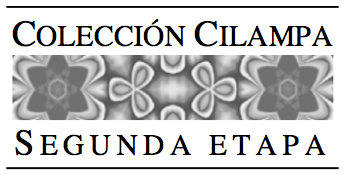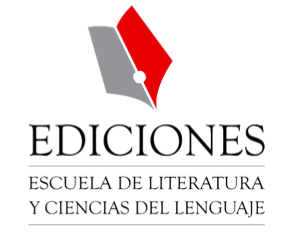The Protos Mandate: Science Fiction and Neoliberalism
DOI:
https://doi.org/10.15359/rl.1-59.4Keywords:
American literature, Costa Rican literature, Latin American literature, cinema, Novum, poetics, science fictionAbstract
The relation between science fiction and neoliberalism is analyzed through the study of the novel The Protos Mandate, by Nick Kanas. The concept of novum explains certain changes present in the novel, in relation to the tradition linked to the poetics of science fiction developed by Darko Suvin and to the idea of the dialectics between the context of writing/production and the diegetic context of the literary (or film) text, to understand the reasons for the changes happened in the so-called current neoliberal science fiction.
References
Alfaro Vargas, Roy. «La ficción de Iván Molina Jiménez», Letras 53 (2013): 201-217; y Roy Alfaro Vargas, «El novum en la ciencia ficción costarricense», Revista de Filología y Lingüística de la Universidad de Costa Rica 40, 1 (2014): 129-140.
Angenot, Marc y Darko Suvin, «Not Only but Also: Reflections of Cognition and Ideology in Science Fiction and SF Criticism», Science Fiction Studies 6, 2 (1979), 169.
Bould, Mark. «Introduction. Rough Guide to a Lonely Planet, from Nemo to Neo», Mark Bould y Miéville China (eds.), Red Planets: Marxism and Science Fiction. Middletown, CT: Weslayan University Press, 2009.
Butzev, Jristo. «La maestra imaginación», El correo de la UNESCO 37 (1984): 22 y 24-25.
Castellani, Leonardo y Giulia Alice Fornaro. Teletrasporto. Dalla fantascienza alla realtà. Milán: Springer, 2011.
China, Miéville. «Afterword. Cognition as Ideology: A Dialectic of the SF Theory», Bould y China (eds.), 245.
Contreras Suárez, Tito Guillermo. «La tarjeta”, Cosmocápsula. Revista Colombiana de Ciencia Ficción 0 (2009): 9-11.
Del Castilo Pérez, Carlos Guillermo. «Ñorñoritos», Cosmocápsula. Revista Colombiana de Ciencia Ficción 2 (2010): 51-52.
Favier, Jacques. «Les jeux de la temporalité en science-fiction», Littérature 8 (1972): 70.
Freedman, Carl. «Marxism, Cinema and Some Dialectics of Science Fiction and Film Noir», Bould y China (eds.), 66-82.
Galindo, Fernando. «Fragmentos», Cosmocápsula. Revista Colombiana de Ciencia Ficción 0 (2009): 12-17.
Gestapó, «El experimento», Cosmocápsula. Revista Colombiana de Ciencia Ficción 0 (2009): 40-42.
Giannetti, Louis. Understanding Movies. Boston: Pearson, 2014.
Gomel, Elana. Narrative Space and Time. Representing Impossible Topologies in Literature. Nueva York y Londres: Routledge, 2014.
Goswani, Amit. «Ciencia y ciencia ficción. Una doble exploración de la realidad», El correo de la UNESCO 37 (1984): 4-7.
Haywood Ferreira, Rachel. The Emergence of Latin American Science Fiction. Middeltown, CT: Wesleyan University Press, 2011).
Jameson, Fredric. Archaelogies of the Future. The Desire Called Utopia and Other Science Fictions. Londres y Nueva York: Verso, 2005) 57.
Jordan, Manuel. «Ketman», Cosmocápsula. Revista Colombiana de Ciencia Ficción 3 (2010): 67-71.
Kanas, Nick. The Protos Mandate. A Scientific Novel. Cham, Heidelberg, Nueva York, Dordrecht y Londres: Springer, 2014.
Kazantsev, Alexander. «De la ficción a la ciencia», El correo de la UNESCO 37 (1984): 13-16.
Lem, Stanislaw. «On the Structural Analysis of Science Fiction», Science Fiction Studies 1, 1 (1973): 28.
Luokkala, Barry. Exploring Science Through Science Fiction. Nueva York, Heidelberg, Dordrecht y Londres: Springer, 2014.
Mora Vélez, Antonio. «El oasis de Palas», Cosmocápsula. Revista Colombiana de Ciencia Ficción 0 (2009): 28-31.
Piassi, Luis Paulo y Maurício Pietrocola, «Ficção científica e ensino de ciências: para além do método de “encontrar erros em filmes”», Educação e Pesquisa 35, 3 (2009): 537. DOI: https://10.1590/s1517-9702200900030008.
Rieder, John. «Spectacle, Technology and Colonialism in SF Cinema: The Case of Wim Wenders’ Until the End of the World», Bould y China (eds.), 83-99.
Saldivar, Carlos Enrique. «Mal de luna», Cosmocápsula. Revista Colombiana de Ciencia Ficción 0 (2009): 36-39.
Saldivar, Carlos Enrique. «Y éste fue el principio», Cosmocápsula. Revista Colombiana de Ciencia Ficción 2 (2010): 67-69.
Spiegel, Simon. «Science Fiction», Markus Kuhn, Irina Scheidgen y Nicola Valeska Weber (eds.), Filmwissenschaftliche Genreanalyse. Eine Einführung. Berlin/Boston, 2013.
Suvin, Darko. «On the Poetics of Science Fiction», College English 34, 3 (1972): 381.
Suvin, Darko. Metamorphoses of Science Fiction. On the Poetics and History of a Literary Genre. New Haven y Londres: Yale University Press, 1979.
The Real History of Science Fiction, BBC America, 2014.
Valitutti, Juan Manuel. «Cuadro familiar», Cosmocápsula. Revista Colombiana de Ciencia Ficción 2 (2010): 76-77.
Independence Day. Dir. Roland Emmerich. Con Jeff Goldblum, Will Smith, Bill Pulman, Margaret Colin y Vivica A. Fox. Twentieth Century-Fox Film Corporation y Centropolis Entertainment, 1996.
In Time. Dir. Andrew Niccol. Con Johnny Galecki, Olivia Wilde, Justin Timberlake y Amanda Seyfried. Regency Enterprises, New Regency Pictures, Strike Entertainment, 2011.
: A Space Odyssey. Dir. Stanley Kubrick. Con Keir Dullea, Gary Lockwood, William Sylvester y Daniel Richter. Stanley Kubrick, 1968.
Fantastic Voyage: The Evolution of Science Fiction. Atlas Media Corp. para History Channel, 2002.
Elysium. Dir. Neill Blomkamp. Con Matt Damon, Jodie Foster, William Fichtner, Sharlto Copley y Alice Braga. TriStar Pictures, Sony Pictures Entertainment (SPE), Media Rights Capital, QED International, Simon Kinberg Productions, 2013.
The Island. Dir. Michael Bay. Con Scarlett Johansson y Ewan McGregor. Dreamworks Pictures y Warner Bros. Pictures, 2005.
District 9. Dir. Neill Blomkamp. Con Sharlto Copley, Jason Cope y Robert Hobbs. WingNut Films, QED International, Key Creatives y Wintergreen Productions, 2009.
Prometheus. Dir. Ridley Scott. Con Noomi Rapace, Michael Fassbender, Charlize Theron, Idris Elba y Guy Pearce. Brandywine Productions, Scott Free Productions y Dune Entertainment, 2012.
Under the Skin. Dir. Jonathan Glazer. Con Scarlett Johansson, Krystof Hádek, Robert J. Goodwin y Paul Brannigan. Film4, 2013.
Eternity. Dir. Alex Galvin. Con Alan Brunton, Amy Tsang, Amy Usherwood y April Phillips. Eternity Productions Limited, 2013.
Zodiac: Signs of the Apocalypse. Dir. W.D. Hogan. Con Christopher Lloyd, Joel Gretsch, Reilly Dolman y Andrea Brooks. SyFy Original Movies/Cinetel Films/Reel One Pictures, 2014.
Debug. Dir David Hewlett. Con Adam Butcher, Adrian Holmes, Alex Mallari Jr. y Allison Brennan. Copperheart Entertainment, 2014.
Trascendence. Dir. Wally Pfister. Con Johnny Depp, Rebecca Hall, Paul Bettany, Kate Mara y Morgan Freeman. Warner Bros. Pictures y Alcon Entertainment, 2014.
Automata. Dir. Gabe Ibáñez. Con Antonio Banderas, Birgitte Hjort, Dylan McDermott, Robert Forster, Tim McInnerny y Melanie Griffith. Millennium Entertainment, 2014.
The Signal. Dir. William Eubank. Con Brenton Thwaites, Laurence Fishburne, Olivia Cooke, Beau Knapp, Lin Shaye, Robert Longstreet y Jeffrey Grover. Automatik Entertainment y Low Spark Films, 2014.
Divergent. Dir. Neil Burger. Con Shailene Woodley, Maggie Q, Zoë Kravitz, Ansel Elgort y Ray Stevenson. Red Wagon Entertainment, 2014.
Interstellar. Dir. Christopher Nolan. Con Matthew McConaughey, Anne Hathaway, David Gyasi, Jessica Chastain, Mackenzie Foy, Matt Damon y Michael Caine. Warner Bros., Syncopy, Paramount Pictures, Legendary Pictures y Lynda Obst Productions, 2014.
Lucy. Dir. Luc Besson. Con Scarlett Johansson, Morgan Freeman y Min-sik Choi. Universal Pictures y Canal+, 2014.
I Origins. Dir. Mike Cahill. Con Michael Pitt, Brit Marling, Astrid Bergès-Frisbey, Steven Yeun y Archie Panjabi. Verisimilitude/WeWork Studio/Bersin Pictures, 2014.
Downloads
Published
How to Cite
Issue
Section
License
Principios básicos:
a) Los autores conservarán los derechos de propiedad intelectual de sus aportes o artículos;
b) Cada autor deberá indicar expresamente que ese artículo lo entrega, en calidad de exclusividad, a la revista LETRAS; y
c) La revista Letras se reservará el derecho de autorizar para fines académicos no lucrativos la reproducción y uso de ese material por parte de terceros, siempre que éstos indiquen expresamente la procedencia del artículo. Todo ello se postula en concordancia con la normativa de "Creative Commons Atribution License", recomendada.

This work is licensed under a Creative Commons Attribution-NonCommercial-NoDerivs 3.0 Costa Rica License.















